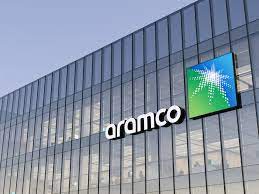Saudi Arabia’s Aramco has granted $25B in contracts as it aims to significantly expand its gas network.
Aramco President and CEO Amin H. Nasser stated that the energy giant has awarded contracts exceeding $25B to advance its strategic gas expansion, with an objective of increasing sales gas production by more than 60 per cent by 2030 compared to 2021 levels.
The contracts cover the second phase development of the vast Jafurah unconventional gas field, the third phase expansion of Aramco’s Master Gas System, new gas rigs, and ongoing capacity maintenance.
Amin H. Nasser remarked: “These contract awards reflect our strong belief in the future of gas as a crucial energy source and an essential feedstock for downstream industries. The scale of our ongoing investment in Jafurah and the expansion of our Master Gas System highlights our intention to further integrate and grow our gas business to meet the expected rise in demand.”
“This supports the diversification of our portfolio, generates new job opportunities, and aids the Kingdom’s transition towards a lower-emission power grid, where gas and renewables gradually replace liquids-based power generation.”
“To reach our current position, significant effort, innovation, and a robust ‘can do’ spirit have been demonstrated by teams across our extensive network of suppliers and service providers, who have partnered with Aramco on this journey to build and expand our world-class energy infrastructure.”
Nasser expressed gratitude for the continuous support provided by Prince Abdulaziz bin Salman bin Abdulaziz Al Saud, Minister of Energy, which consistently propels Aramco forward.
He acknowledged the Minister’s dedication to making the Kingdom’s energy industry a global model in growth, reliability, development, and diversity, and to positively contribute to supplying the nation and the world with energy to achieve sustainability and prosperity.
The company has awarded 16 contracts, worth a combined total of around $12.4B, for the second phase development at Jafurah.
This work will involve constructing gas compression facilities and associated pipelines, expanding the Jafurah Gas Plant, including building gas processing trains, utilities, sulphur, and export facilities.
It will also involve constructing the company’s new Riyas Natural Gas Liquids (NGL) fractionation facilities in Jubail — including NGL fractionation trains, utilities, storage, and export facilities — to process NGL received from Jafurah.
A further 15 lump-sum turnkey contracts, worth a combined total of around $8.8B, have been awarded to begin the third phase expansion of the Master Gas System, which delivers natural gas to customers across the Kingdom of Saudi Arabia.
The expansion, carried out in collaboration with the Ministry of Energy, will enlarge the network and increase its total capacity by an additional 3.15B standard cubic feet per day (bscfd) by 2028, through the installation of around 4,000 km of pipelines and 17 new gas compression trains.
Additionally, 23 gas rig contracts worth $2.4B have been awarded, along with two directional drilling contracts worth $612M.
Meanwhile, 13 well tie-in contracts at Jafurah, worth a total of $1.63B, have been awarded between December 2022 and May 2024.
The Jafurah unconventional gas field is estimated to contain 229 trillion standard cubic feet of raw gas and 75B stock tank barrels of condensate. Phase one of the Jafurah development programme, which began in November 2021, is progressing on schedule, with initial start-up expected in the third quarter of 2025.
Aramco anticipates total overall lifecycle investment at Jafurah to exceed $100B, with production reaching a sustainable sales gas rate of two billion standard cubic feet per day by 2030, alongside significant volumes of ethane, NGL, and condensate.
Aramco’s Master Gas System is an extensive network of pipelines that links Aramco’s key gas production and processing sites throughout the Kingdom of Saudi Arabia. Its expansion will increase access to domestic gas supplies for customers in the industrial, utility, and other sectors, providing a lower greenhouse gas emission alternative to oil for power generation.
Since 1982, the network has transported associated gas, also known as “waste gas” released during oil production, instead of being flared, demonstrating Aramco’s innovation and early adoption of solutions that help mitigate emissions.
This pioneering network, which now transports associated gas and sales gas, has helped Aramco achieve near-zero routine gas flaring and maintain a flare volume of less than 1 per cent of total raw gas production since 2012, contributing to the company having one of the lowest upstream carbon intensities in the industry.


